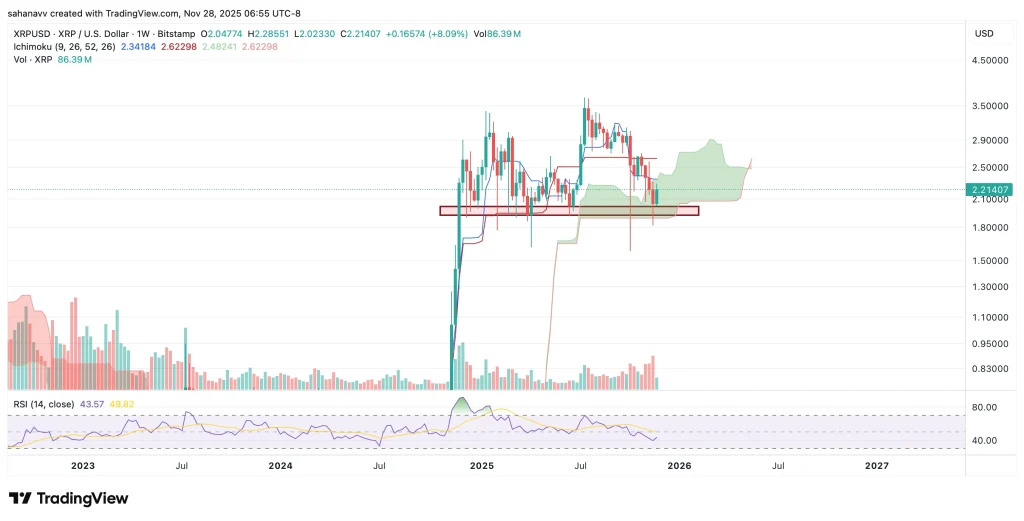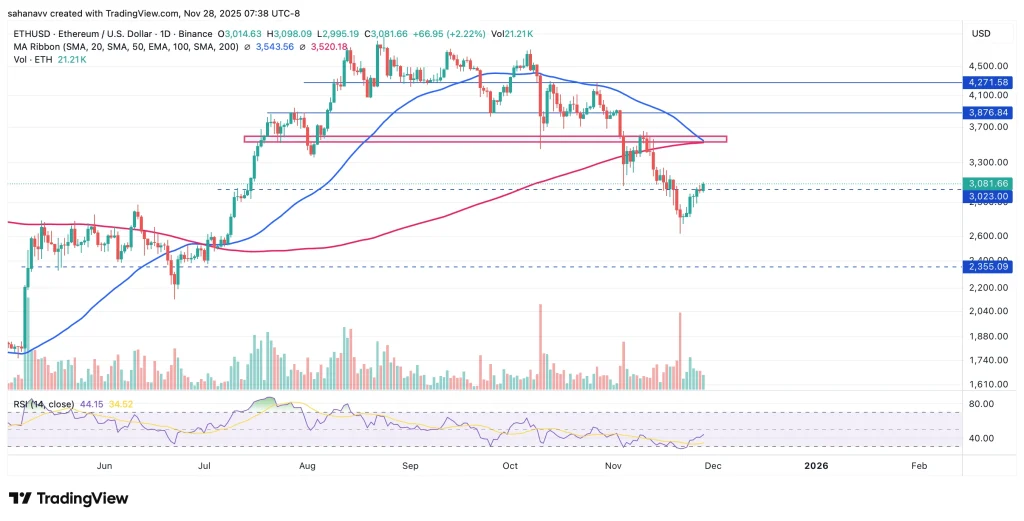Ethereum’s Strategic Reboot: How a Grant Pause Signals a New Era of Infrastructure-Driven Growth
- Ethereum Foundation pauses open grants to prioritize infrastructure, interoperability, and scalability projects under its Ecosystem Support Program (ESP). - $32.6M allocated in Q1 2025 for upgrades like Pectra and Fusaka, reducing gas fees by 53% and enabling stateless clients. - Interoperability frameworks like EIL and Open Intents aim to streamline cross-chain interactions, addressing ecosystem fragmentation. - Academic grants and developer tooling (e.g., ZK Playbook) bridge research to scalable soluti
The Ethereum Foundation’s recent decision to pause open grants under its Ecosystem Support Program (ESP) marks a pivotal shift in the blockchain’s evolution. By redirecting resources toward infrastructure, interoperability, and scalability, the foundation is not merely addressing technical bottlenecks but redefining Ethereum’s role as a foundational layer for global finance and decentralized innovation. This recalibration, driven by a surge in grant applications that overwhelmed evaluation capacity [1], signals a strategic pivot from reactive funding to proactive investment in high-impact projects. For investors, this shift opens a window into Ethereum’s next phase: a focus on compounding value through infrastructure-driven growth.
A Strategic Reallocation: From Open Grants to Curated Innovation
The ESP’s temporary suspension is not a retreat but a recalibration. In Q1 2025 alone, the foundation allocated $32.6 million to projects like the Pectra and Fusaka upgrades, which reduced gas fees by 53% and enabled stateless clients [2]. These upgrades, part of Ethereum’s layer-1 (L1) scalability roadmap, directly address the network’s throughput limitations, a critical factor for institutional adoption. The Dencun upgrade further slashed Layer-2 costs by 90%, making decentralized finance (DeFi) and real-world asset (RWA) tokenization more accessible [3]. By prioritizing such projects, the foundation is aligning its resources with Ethereum’s technical roadmap, ensuring that capital flows to initiatives with the highest leverage for long-term value creation.
Interoperability as the New Frontier
Interoperability has emerged as a cornerstone of Ethereum’s strategic focus. The Ethereum Interoperability Layer (EIL), a trustless messaging system, aims to streamline cross-chain interactions, making them feel like single-chain execution [4]. Complementing this is the Open Intents Framework, which abstracts fragmented tooling to simplify user-defined goals like asset transfers or trades [5]. These initiatives are not just technical fixes—they are architectural shifts that reduce fragmentation among Layer-2 networks, a growing concern as Ethereum’s ecosystem expands. For investors, this means opportunities in cross-chain infrastructure projects like Chainlink CCIP and Polygon’s Layer-2 solutions, which are already receiving foundation support [6].
Developer Tooling and Academic Research: Building the Next Generation
The foundation’s new funding model also emphasizes developer tooling and academic research. A $1.5 million academic grants round is bridging theoretical advancements in cryptography and consensus protocols with practical applications [7]. Projects like the ZK Playbook and Commit-Boost, which received funding in 2024, exemplify how research can translate into scalable solutions [8]. For developers, this focus on tooling lowers barriers to entry, fostering innovation in zero-knowledge (ZK) cryptography and privacy-preserving smart contracts. Investors should watch for startups leveraging these tools to build next-generation DeFi protocols or RWA platforms, such as Ondo Finance’s tokenized U.S. Treasury assets integrated into Aave and Compound [9].
Financial Sustainability and Institutional Adoption
The foundation’s strategic shift also includes a plan to reduce annual treasury spending from 15% to 5% by 2029 [10]. This fiscal discipline is critical for maintaining institutional trust in a volatile market. By prioritizing projects that enhance capital efficiency—such as validator consolidation and spam resistance features—the foundation is addressing institutional concerns around cost predictability and network security [11]. This alignment with institutional priorities positions Ethereum to compete more effectively with blockchains like Solana and Avalanche , which have aggressively invested in developer tooling and cross-chain solutions [12].
Investment Opportunities: Where to Allocate Capital
For investors, the foundation’s reallocated resources highlight three key areas:
1. ZK-Based Scaling Solutions: Projects like zkSync and StarkNet, which received foundation support, are poised to benefit from Ethereum’s focus on privacy and scalability.
2. Interoperability Protocols: EIL and Open Intents-related startups could unlock new use cases in cross-chain DeFi and NFT markets.
3. RWA Tokenization Platforms: Securitize and HashKey Chain, which facilitate institutional-grade tokenization, are leveraging Ethereum’s infrastructure to bridge TradFi and DeFi [13].
Conclusion: A Foundation for the Future
The Ethereum Foundation’s grant pause is not a pause in progress—it is a recalibration toward a future where infrastructure and scalability drive value. By refocusing on high-impact projects, the foundation is laying the groundwork for Ethereum to maintain its dominance in a rapidly evolving blockchain landscape. For investors, this means opportunities in projects that align with Ethereum’s technical roadmap, from ZK cryptography to interoperability frameworks. As the foundation’s revised funding model takes shape in Q4 2025, the ecosystem’s next phase of growth will be defined by those who can harness these strategic priorities.
Source:
[12] Ethereum vs Cardano vs Polkadot vs Solana Comparison
Disclaimer: The content of this article solely reflects the author's opinion and does not represent the platform in any capacity. This article is not intended to serve as a reference for making investment decisions.
You may also like
HYPE Price Prediction December 2025: Can Hyperliquid Absorb Its Largest Supply Shock?

XRP Price Stuck Below Key Resistance, While Hidden Bullish Structure Hints at a Move To $3

Bitcoin Price Prediction: Recovery Targets $92K–$101K as Market Stabilizes
Ethereum’s Layer‑2 Surge Signals Next ETH Price Rally—But a Key Hurdle Remains
